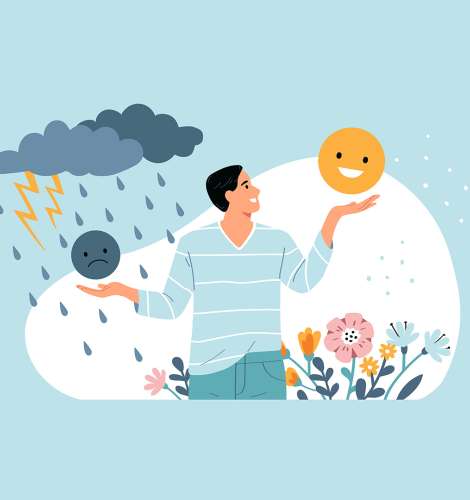Coming from the creator of Don Juan, Lord Byron, a man of grandiose and excess, this remark rings particularly true.
Life cannot sustain a perpetual high, a continuous excitement, or a constant, everyday and ever after happy mood. Neither the body nor the brain is wired for it.
But in today’s fast-track society of excess, we expect increasing and instant rewards all the time. We are expected to be perfect, and perfectly happy, from now to eternity. Every problem has a build-in help manual; every blue mood has a cure in a glass of red. Only if we know which button to click, which magic pill to reach for, what or whose site or channel to follow…
When high becomes the norm, more is necessary for less. The price to pay in pursuing a kaleidoscopic (by nature unreal, firework-beautiful, and changing) biological, biochemical, on-screen or click-able quick-fix is the crushing slide into a black hole - deprived of normal meals and sleep, and maybe with posture and pain issues added on as well.
Why is a happy mood, a calm peaceful mind, or even just contentment, so elusive?
Depression is more common than most of us realize. Major depression, if left untreated, may easily lead to tormenting hell: suicide or addiction.
Our brain contains an estimated 86 billion neurons, each of which have numerous connection points forming a network of 100-500 trillion synapses. As science unravels some of the brain’s mysteries, we can begin to understand more about the physiological basis of a good mood, depression, and the swinging between them.
There are many contributing factors other than physiology: psychological, social, cultural, interpersonal, environmental, what we eat, how we sleep…the list of outside and inside factors that connect to and impact the brain and its functions are endless.
Lincoln once said that happiness is a decision, this is probably true.
Maybe an important first steps to take to improve mood and lessen depression is to decide. Decide that we want to feel better. To become happier. That we are, after all, worthy of happiness, and, therefore, worthy of the efforts and the struggles to learn how… How to listen to our hearts, care for our bodies, and nurture our minds…
So what if we still find ourselves unhappy or even depress at times?
Perhaps fluctuation in the moods is not so bad after all – with momentum of the fall propelling on to the next rising. As Percy B. Shelley declares in Julian and Maddalo, “They learn in suffering what they teach in song.”
Maybe it is the tension and transition between changing moods, the discipline and calm in between, and the lessons and wisdom drawn from the continuum that work to expand our capacities for happiness.
In the end, neither the satisfied body nor the gratified brain alone can fulfill the mind or pacify the soul.
True contentment of the mind requires more than an instantly gratified brain. It probably requires effort, time to nurture, and growth. Instead of feeding on rewarding rapturous highs, it feeds on knowledge and appreciation of the inner self, of the outer world, of others, and of the inter-connectedness of all there is.


